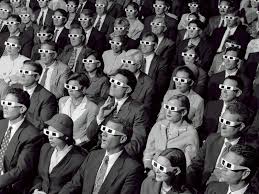记忆方法
记忆“audience”可以通过以下简单方法:联想为一个“au”(像人头)戴着一个“d”(像是帽子)和“ience”(意为行为或状态),想象一个戴着帽子的人正在观看(audience)表演,这样就能记住这个单词的含义是“观众”。
以上内容由AI生成, 仅供参考和借鉴
中文词源
audience 听众
来自audible,听得见的,-ence,名词后缀。
英语词源
- audience (n.)
- late 14c., "the action of hearing," from Old French audience, from Latin audentia "a hearing, listening," from audientum (nominative audiens), present participle of audire "to hear," from PIE compound *au-dh- "to perceive physically, grasp," from root *au- "to perceive" (cognates: Greek aisthanesthai "to feel;" Sanskrit avih, Avestan avish "openly, evidently;" Old Church Slavonic javiti "to reveal"). Meaning "formal hearing or reception" is from late 14c.; that of "persons within hearing range, assembly of listeners" is from early 15c. (French audience retains only the older senses). Sense transferred 1855 to "readers of a book." Audience-participation (adj.) first recorded 1940.
权威例句
- 1. My audience certainly isn't the proverbial man in the street.
- 我的观众当然不是街上的平头百姓。
- 2. The offending comment was in fact a heckle from an audience member.
- 这番冒犯性的话实际上是一名观众的诘难。
- 3. They would always come out and warm up the audience.
- 他们总是会出来调动观众情绪。
- 4. Say's writings reached a wide audience during his lifetime.
- 在塞伊有生之年,他的作品拥有大量的读者。
- 5. After the show, the audience deserts the Blackpool streets.
- 演出结束后,观众从布莱克浦的大街上消失了踪迹。
